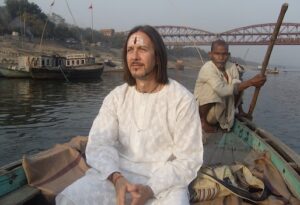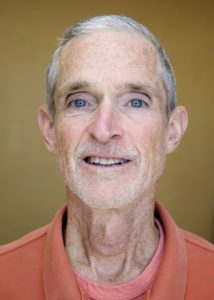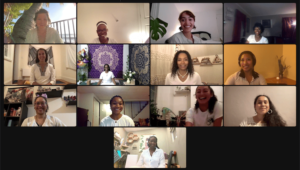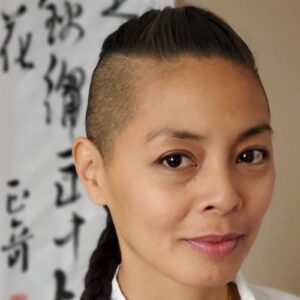Facing Adversity
by K. Muktidevi Demafeliz
 K. Muktidevi Demafeliz is a born and raised San Franciscan and has been a yoga practitioner for 16 years. Her yoga practice began with her mentor Tony Garcia who guided her in the study of yoga back in 2012 through the SFO Airport’s Wellness Program. He encouraged her to pursue yoga teacher training, which she did, in the Integral Yoga tradition. She is certified in Basic Hatha I, Intermediate Hatha II, Accessible Yoga (Gentle), and certified in Mindful Resilience Training through the Veterans Yoga Project to teach trauma-informed yoga. She wishes to pursue future trainings such as Meditation Teacher Training in addition to Yoga for First Responders as she is the Well-Being Champion for the San Francisco Police Department. YOGA IS HER PASSION, and she expresses her love and enthusiasm for the practice with those she comes into contact with, on and off the mat. Muktidevi mentors and supports teacher trainees as well as newly certified teachers to help them continue to develop and grow while on their yogic path. She also supports the BIPOC Sangha which was born at the Integral Yoga Institute San Francisco (IYISF) and continues to serve these communities to help create ripples for change to establish a space of healing and empowerment. With that, yoga has impacted and transformed her life in such a positive and healthy way that she truly believes it is the saving grace for all. For 26 years, Muktidevi has been living with Multiple Sclerosis (MS) and continues to carry out the practices of yoga to help her maneuver through life’s challenges when facing adversity. She is a lifelong learner and strives to become the best version of herself to live her best life, regardless of what life may bring.
K. Muktidevi Demafeliz is a born and raised San Franciscan and has been a yoga practitioner for 16 years. Her yoga practice began with her mentor Tony Garcia who guided her in the study of yoga back in 2012 through the SFO Airport’s Wellness Program. He encouraged her to pursue yoga teacher training, which she did, in the Integral Yoga tradition. She is certified in Basic Hatha I, Intermediate Hatha II, Accessible Yoga (Gentle), and certified in Mindful Resilience Training through the Veterans Yoga Project to teach trauma-informed yoga. She wishes to pursue future trainings such as Meditation Teacher Training in addition to Yoga for First Responders as she is the Well-Being Champion for the San Francisco Police Department. YOGA IS HER PASSION, and she expresses her love and enthusiasm for the practice with those she comes into contact with, on and off the mat. Muktidevi mentors and supports teacher trainees as well as newly certified teachers to help them continue to develop and grow while on their yogic path. She also supports the BIPOC Sangha which was born at the Integral Yoga Institute San Francisco (IYISF) and continues to serve these communities to help create ripples for change to establish a space of healing and empowerment. With that, yoga has impacted and transformed her life in such a positive and healthy way that she truly believes it is the saving grace for all. For 26 years, Muktidevi has been living with Multiple Sclerosis (MS) and continues to carry out the practices of yoga to help her maneuver through life’s challenges when facing adversity. She is a lifelong learner and strives to become the best version of herself to live her best life, regardless of what life may bring.






